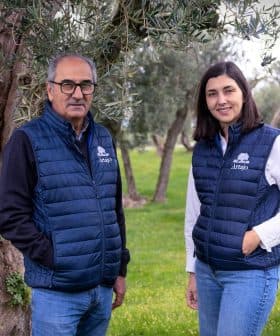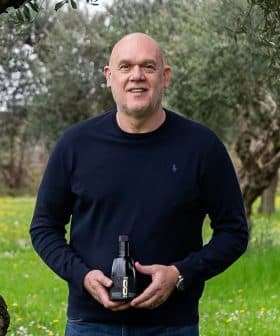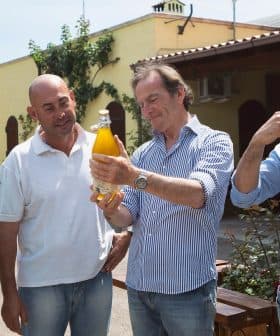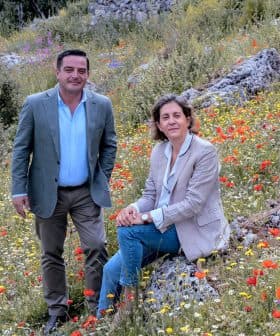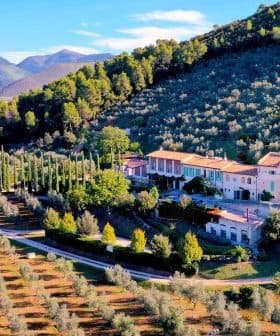A Record Number of Awards for Tunisian Olive Oil
Following a record 38 entries, Tunisian olive oil producers take home 11 awards at the 2018 NYIOOC.
 Slim Fendri of Domaine Fendri (Photo: Isabel Putinja for Olive Oil Times)
Slim Fendri of Domaine Fendri (Photo: Isabel Putinja for Olive Oil Times) 16.8K reads
16.8K readsTunisian olive oil producers won 11 awards at the NYIOOC World Olive Oil Competition this year, with Karim Fitouri receiving two Gold Awards for his brand Olivko. Slim Fendri, a long-time producer, won his first award at the competition this year, attributing his success to entering a different variety of olive oil that appealed to the judges.
Tunisian olive oil producers are celebrating a record win of 11 awards at this year’s NYIOOC World Olive Oil Competition. This year, 38 entries were received from Tunisia, with seven Gold and four Silver Awards going to Tunisian olive oils.
This is important for the recognition of Tunisian olive oil in the world as a high-quality oil with its own personality.
Karim Fitouri was in New York to receive his awards in person. After taking home a Gold last year for his brand Olivko, this year he returned to Tunisia with two Gold Awards for his Chetoui Utique and a medium Chetoui from his organic range.
“I definitely felt relieved, that all the hard work paid off and proud that Olivko won once again, but this time two Gold Awards,” he told Olive Oil Times. “NYIOOC for sure is the biggest and most prestigious international olive oil competition. The USA is the biggest importer of extra virgin olive oil, so it’s definitely a very important award for recognition in the American market and worldwide. I am definitely making a change in the Tunisian olive oil industry, and this is just a beginning.”
See Also:The best olive oils from Tunisia
One of the first-time winners at NYIOOC 2018 is a long-time producer who has collected many international awards for his high-quality organic olive oil. Slim Fendri from the coastal city of Sfax in central Tunisia was the first Tunisian producer to receive international accolades: his Domaine Fendriorganic olive oil has been awarded close to two dozen times from international competitions. This year he will add a Gold Award from NYIOOC to his growing collection.
“This is actually the third time I participated in NYIOOC but the first two times I was unsuccessful,” he revealed. “This may be because I had entered my Chemlali oil which is particularly appreciated by many consumers but not by the judges, it seems. So this time I decided to send in my Chetoui, the other main Tunisian variety from the north of the country which I also produce on my farm. And it won.”

Slim Fendri of Domaine Fendri (Photo: Isabel Putinja)
While the delicate fruity notes of Chemlali appeal to many palates and make the varietal ideal for blending, the more lively and pungent Chetoui variety is what grabbed the attention of the New York tasting panel this time. Among the winning Tunisian olive oils at New York, only one Chemalai oil (Youngra by Alcazar Agro) won an award, and a Gold at that.
“I’m very happy to be among the winners in New York because it’s the only competition where my oil hadn’t yet won an award,” Fendri added. “And this is recognition from a market that’s very important for our future. We need recognition from the US market and I hope this will help us find a good distributor. But for me, the most important result of New York is seeing eleven Tunisian oils win awards this year. This is important for the recognition of Tunisian olive oil in the world as a high-quality oil with its own personality.”
“It was a really nice surprise when I received a call from New York at 1:00 AM informing me about the Silver Award,” said Raouf Ellouze, another Sfax native and first-time winner at the competition. “It confirmed to me that passion and hard work and conviction always pay off. This modest award has been the confirmation that we can do a lot for Tunisian olive oil if we predict in advance the needs of the consumers. Also if we guarantee the traceability of the product and the consistency of the quality.”
Ellouze’s Domaine Chograne extra virgin olive oil is a blend of three varietals: the main Tunisian native varieties of Chemlali and Chetoui, as well as Koroneiki, a Greek variety that has been introduced in Tunisia. Located near Eljem, which was once the site of the ancient Roman city of Thysdrus, Ellouze’s estate has been in the family for several generations and mainly produces the Chemlali varietal.
“As you know, winning at NYIOOC with 1,000 entries isn’t easy,” said Ellouze. “Great was my disappointment when I didn’t find my name on the list of awardees at the Japan Olive competition. It was the same oil I had sent to New York. But I’m confident for the future. It was silver this year, I’ll apply for the gold in the future. We have a wonderful potential in Tunisia, let’s valorize it.”
Further north in the Zaghouan district of northern Tunisia is Domaine Ben Ammar, a family-run organic farm of 200 hectares located in the picturesque mountainous region of Jebel Mansour. The Ben Ammar family produces organic table olives, artichokes and sun-dried tomatoes for export as well as olive oil pressed in their own on-site mill. Their organic olive oil brand Ivlia is made of Chetoui olives and has already won a slew of national and international awards.
“This was the first time we participated in the NYIOOC,” said Rawia Ben Ammar, speaking on behalf of the family business. “We’re thrilled by this magnificent news, especially considering that we received a Gold Award on our first try and this at the largest international olive oil competition in the world. This is also good news for business and we hope to be able to increase international sales and enter new markets.”

Rawia Ben Ammar at the Ben Ammar farm (Photo: Isabel Putinja)
Ben Ammar attributes the farm’s terroir and the family’s adherence to quality production methods to be the recipe to their success: “Our olive farm is situated in the mountainous region of Jebal Mansour and surrounded by two rivers,” Ben Ammar shared. “We have a special climate that’s beneficial to our olive trees and ultimately our oil as well as the harvest time and extraction method which also impacts on the oil. But for us, the most important way to succeed is to love our olive trees.”
Also located in the important agricultural region of Zaghouan is AGROMED, an organic olive oil production and export company run by the Ben Frej family. Their olive oil brand, Oriviera, is an organic medium blend.
“This is the first time we took part in NYIOOC and it was an intense moment when I heard about our award. I was very happy, very touched and very proud.” said Wajdi Ben Frej, president of AGROMED Canada, the Canadian arm of the family business. “This award is an important one because it gives us not only recognition but also a competitive advantage. American consumers appreciate Mediterranean food products because of their high quality and are also interested in the history of the food products they consume and their composition.”
“Our oils are produced from olives that are carefully picked by hand from our own natural plantations,” he added. “We are located in Zaghouan, a region that combines high altitudes and a unique climate. This allows us to obtain quality olives, essential to the production of authentic olive oil.”
Tunisia’s olive oil sector is not only a man’s world. Among the country’s best olive oil producers are Afet and Selima Ben Hamouda, two sisters in their early thirties who left their professional careers in marketing and law to work their family’s land.
“We are the sixth generation of farmers in our family and are deeply attached to our land and roots,” Selima told Olive Oil Times. “Our farm is in Mateur, about 80 km (50 miles) from the capital Tunis, a region where mostly cereals are grown but it’s also very rich in biodiversity. Different crops such as wheat, canola, oats and wildflowers give a unique taste to our olive oil.”
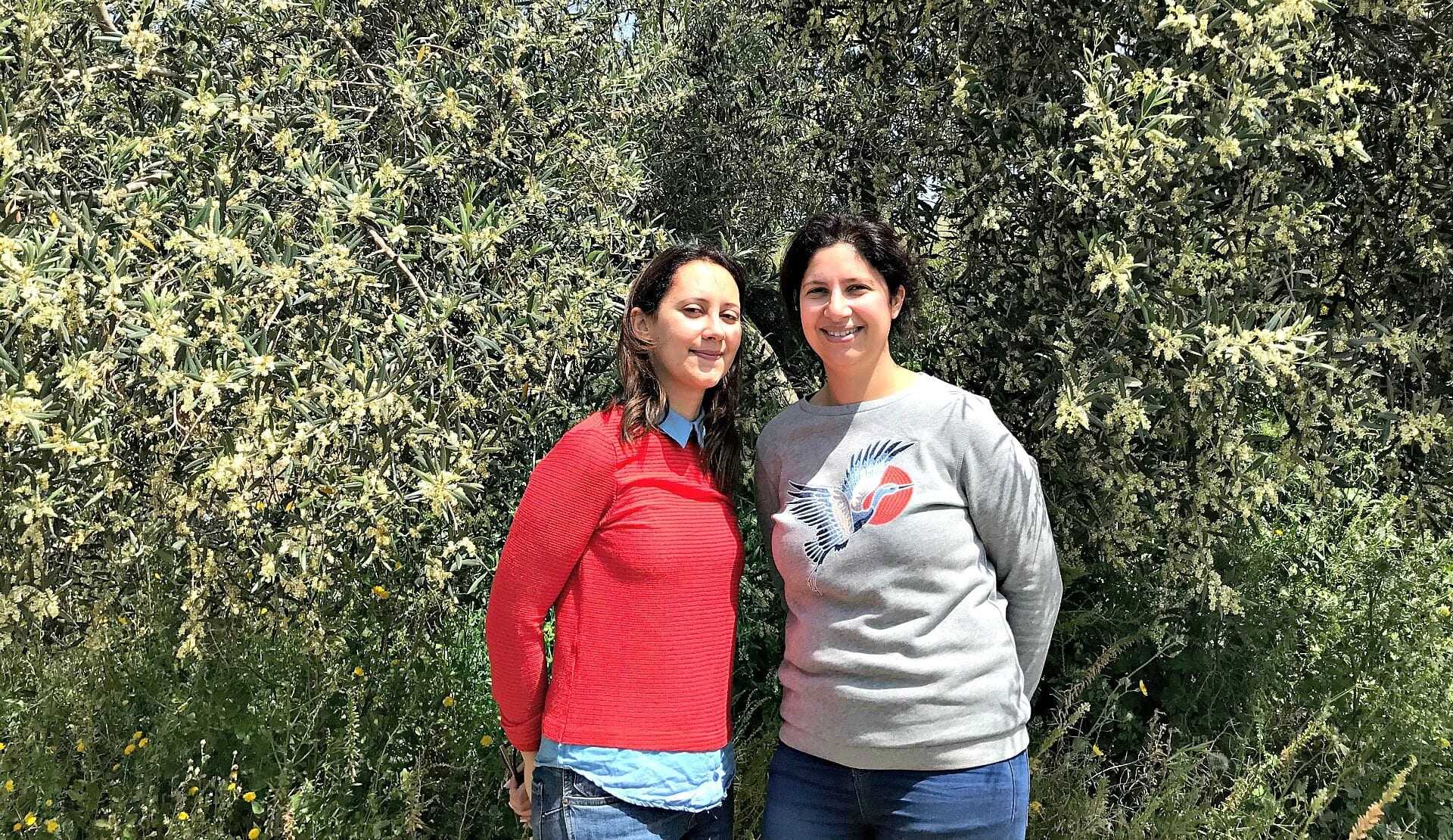
Selima and Afet Ben Hamouda of A&S
After leaving their respective jobs three years ago, the sisters planted nine hectares of Chetoui olive trees and took specialized courses in olive production with experts in Sfax and Australia before founding their own company in 2017 and launching their brand A&S. Their commitment and hard work have paid off: after winning national awards, international recognition has come their way in 2018. A silver at BIOL and a gold at a London event was followed by a Gold Award at NYIOOC for their medium Chetoui extra virgin olive oil.
“It was a moment of real joy and happiness when we saw the results and learned we won. It was an unforgettable moment for both of us,” shared Selima. “Winning a prize at this most prestigious worldwide competition is important for us because it will bring exposure and visibility to A&S and it’s a recognition of the hard work we put into this season. And of course, it increases the profile of Tunisian olive oil around the world.”




